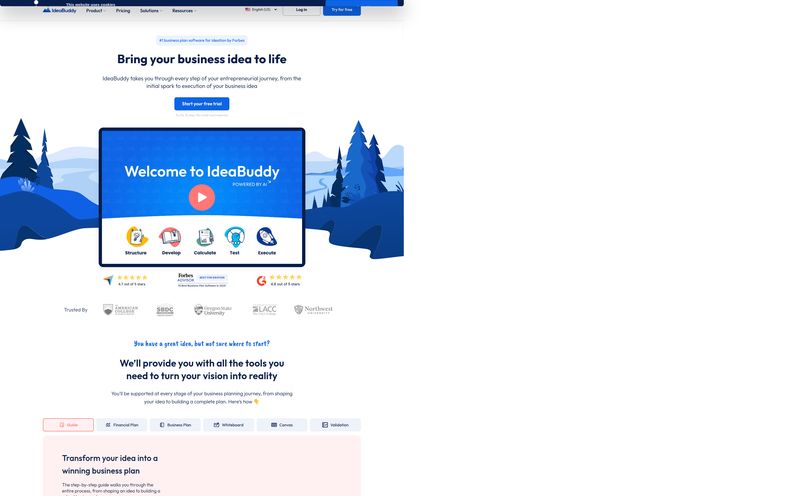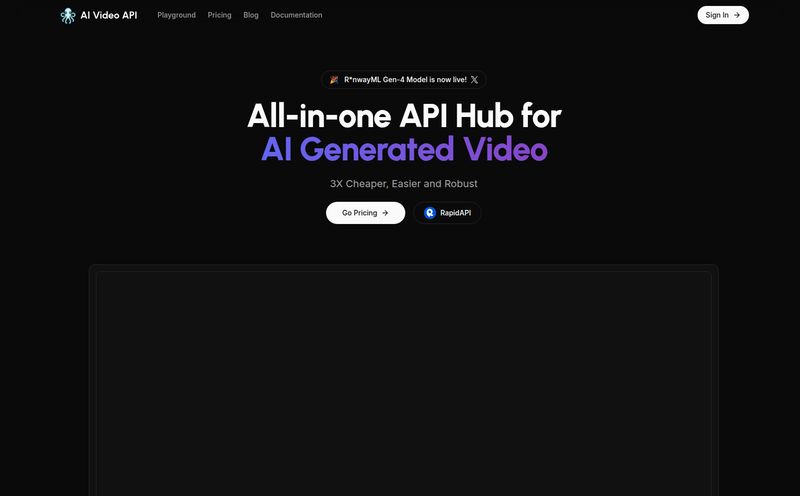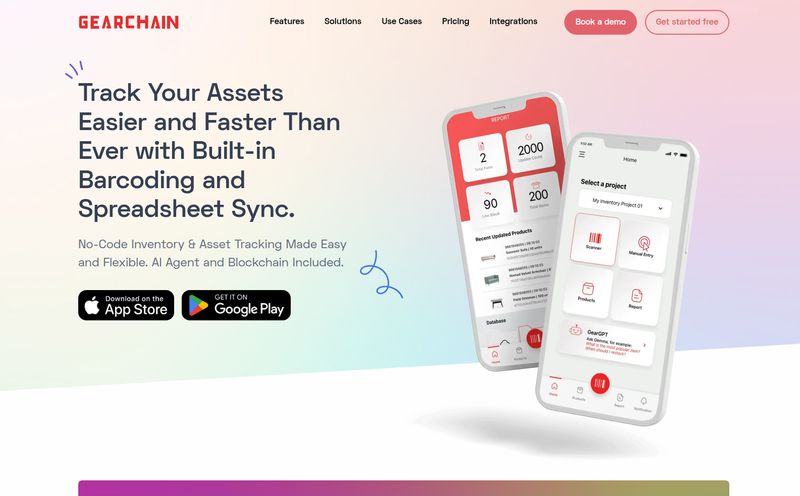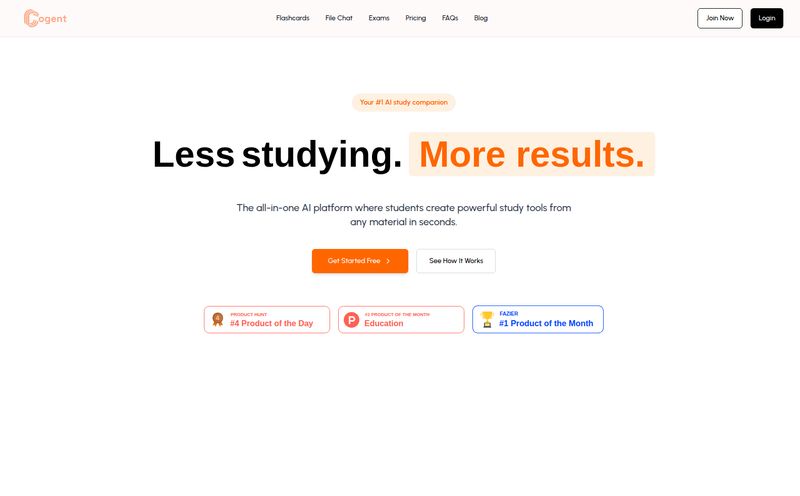As an SEO, a marketer, a creator… our lives are basically one giant, never-ending feed. Twitter (sorry, X), news alerts, RSS feeds, competitor blogs, research papers, Slack channels—it’s a firehose of information, and we’re all just standing there with a tiny bucket.
Every week, there’s a new AI tool that promises to be the magic bullet. Most of them are just another flavor of AI writer, a slightly different wrapper on the same large language model. So when I first heard about ReadPo, I’ll admit I was skeptical. Another one? But then I saw what it was trying to do, and my curiosity was piqued. It wasn’t just about writing. It was about reading. And not just reading, but understanding.
It’s built on some pretty hefty academic concepts—Syntopical Reading and the Feynman Learning Technique. Sounds fancy, right? But what it really means is that this tool is designed to help you not just consume information, but truly synthesize it. To find the signal in the noise. And in our line of work, that’s everything.
So, What Is This ReadPo Thing, Anyway?
In the simplest terms, ReadPo is an AI-powered assistant that helps you collect, curate, and create content at a ridiculous speed. Think of it like a personal research team. You point it toward the topics you care about—say, 'Google Algorithm Updates' or 'AI in Marketing Trends'—and it goes out and gathers all the relevant articles from sources like Google News, X, and your own RSS feeds.
But here's where it gets interesting. It doesn’t just dump a list of links on you. It pulls the content into a dedicated workspace for that topic. Then, its AI gets to work summarizing, finding common threads, and preparing the raw material for you to build on. It’s like it does the first 80% of the research grind for you, leaving you to do the fun part: connecting the dots and adding your own unique perspective.

Visit ReadPo
The Core Features That Actually Matter
A feature list is just a feature list until you see how it actually solves a problem. I've messed around with ReadPo for a bit now, and a few things really stand out as genuinely useful, not just marketing fluff.
Taming the Information Firehose: Content Collection
First off, the content sourcing is solid. You can create a 'Topic' and hook it up to Google News keywords, specific X accounts or hashtags, and any RSS feed you can get your hands on. For my 'SEO News' topic, I have it monitoring the Search Engine Land feed, a few key Google employee accounts on X, and a couple of Google News keywords. It’s a set-it-and-forget-it system that constantly feeds my workspace with the latest happenings. The promise of being able to save any webpage as a source is also listed as 'Coming soon', which would be a game-changer for one-off research projects.
The Magic of Syntopical Reading (Without Needing a PhD)
I mentioned "Syntopical Reading" before. It’s a concept from Mortimer Adler's classic, How to Read a Book, and it's the highest level of reading. It's about reading multiple sources on the same topic to form a new, unique insight that isn't explicitly stated in any single one of them. It’s what we content strategists do every day. ReadPo is the first tool I've seen that tries to build a workflow around this idea. The AI helps you compare and contrast the information it gathers, making it easier to spot teh patterns and contradictions that lead to truly original content.
From Curation to Creation with RAG
This is the big one for me. ReadPo uses something called RAG (Retrieval-Augmented Generation) for its writing assistance. In plain English, this means when you ask the AI to write something, it doesn't just pull from its generic, vast training data. It heavily prioritizes the articles you have collected in your topic. This is a massive deal. It grounds the AI's output in timely, relevant, and fact-checkable sources—your sources. The result is content that’s far more accurate and less prone to the weird 'hallucinations' we see from other tools. You can even ask it to generate social media posters based on an article, which is a surprisingly slick and useful feature for content repurposing.
My Hands-On Experience: The Good, The Bad, and The "Coming Soon"
Okay, so on paper, it sounds great. But what's it like to actually use? Well, it's a bit of a mixed bag, in a mostly good way.
The speed is undeniable. I can go from zero to a fully-briefed understanding of a new topic in under an hour—a process that used to take me half a day of manual sifting. The AI summaries are sharp and the ability to customize writing prompts gives you a ton of control over the final output.
However, let's be real. It's not a magic button. There's a bit of a learning curve. You can't just throw a bunch of random sources at it and expect gold. You have to be thoughtful about curating your topics. Also, the whole thing runs on a credit system. Generating an article costs credits, fetching new posts costs credits. It forces you to be intentional, which isn't necessarily a bad thing, but it can feel a little restrictive at first until you get a feel for the consumption rate.
And then there's the 'Coming Soon' list. Agent Mode, API access... these are the features that could elevate ReadPo from a great personal tool to an indispensable part of an agency's workflow. I'm genuinely excited to see how they implement an 'agent' that can automate content creation from start to finish. For now, it's a bit of a tease.
Let's Talk Money: The ReadPo Pricing Breakdown
Pricing is always a sticking point for new tools. I've got to say, ReadPo's approach is pretty refreshing. They have a free plan that is actually functional.
| Plan | Price (per month) | Key Features & My Take |
|---|---|---|
| Free | $0 | 2 topics, 30 credits/month. This is perfect for a trial run or for monitoring one or two very specific, low-volume topics. It's generous enough to let you properly kick the tires. |
| Starter | $8 | 10 topics, 250 credits/month. This feels like the sweet spot for most freelancers, bloggers, and solo SEOs. It’s enough power to manage multiple projects or clients without breaking the bank. A very fair price. |
| Pro | $24 | 30 topics, 800 credits/month. This is for the power users, the content teams, the agencies. The credit limit is huge, and this tier gets you priority access to new features like the upcoming Agent Mode. |
Who Is ReadPo Actually For? (And Who Should Skip It?)
I've been in the SEO and content game for a long time, and I've seen tools come and go. I think ReadPo has legs because it solves a very specific, very painful problem.
This is a fantastic tool for:
- SEOs and Content Marketers who need to stay on top of industry trends and produce timely, well-researched content.
- Newsletter Creators who need to curate the best content from around the web.
- Social Media Managers looking to quickly generate informed posts and visuals.
- Academic Researchers or Students who need to synthesize information from dozens of papers.
Who should maybe pass? If you primarily write personal essays or content that doesn't require external research, it's probably overkill. And if you're looking for a simple, one-click AI writer and find the curation aspect to be a chore, then a more straightforward tool might be a better fit. Some people just want the AI to do its thing without any setup, and that's fine too.
Frequently Asked Questions
- Is ReadPo just another ChatGPT wrapper?
- Not at all. While it uses AI, its main strength is the workflow it builds around content collection and synthesis. The use of RAG means its outputs are based on the specific, timely sources you provide, not just the AI's general knowledge, which makes a huge difference in quality and accuracy.
- How does the credit system actually work?
- It's pretty straightforward. Different actions consume different amounts of credits. For example, fetching up to 30 articles might cost 1 credit, while generating a full article might cost 8-10 credits. The pricing plans give you a monthly credit allowance. It just encourages you to be efficient.
- Can I use this for a very specific, niche topic?
- Absolutely. That's one of its biggest strengths. As long as you can find RSS feeds, X accounts, or Google News keywords related to your niche, you can build a powerful, automated research hub for it.
- Is the Free plan actually useful?
- Yes, definitely. With 2 topics and 30 credits a month, you can easily monitor a couple of key industry blogs or track a specific trend. It's more than enough to see if the workflow fits your needs before committing to a paid plan.
- What's the real difference between ReadPo and a tool like Feedly?
- Think of it as the next step. An RSS reader like Feedly is great for collecting headlines. ReadPo collects the content and then adds a powerful AI layer on top to help you process, summarize, and create from that content. It closes the loop from consumption to creation.
My Final Thoughts
Look, the flood of information isn't slowing down. If anything, AI is just turning up the pressure. The future of creating valuable content isn't just about who can write the fastest, but who can learn the fastest. It's about smart synthesis, not just raw generation.
ReadPo is one of the first tools I've seen that really gets this. It's not perfect, and I’m eagerly waiting for some of its 'coming soon' features to drop. But it has a clear vision, a solid foundation, and it solves a problem that gives me a headache every single day. It has absolutely earned a permanent spot in my content creation toolkit.
If you're feeling buried by your content queue, give the free plan a shot. You might be surprised at how much it clears your head.



